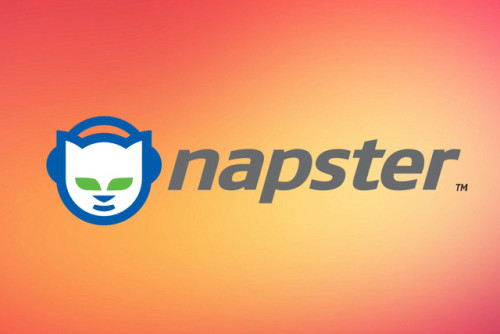On this day in music history: July 26, 2000 - The P2P file sharing service Napster is ordered by a US federal judge to cease trading copyrighted music on their website within 48 hours. The music focused online website founded by Shawn Fanning, John Fanning and Sean Parker in 1999, is the subject of lawsuits of numerous recording artists like Metallica, Dr. Dre and various record labels when they find the sites millions of users illegally downloading mp3 digital files of their music. Metallica discover that a demo version of their song “I Disappear” (from the as yet to be released film “Mission Impossible 3”) is being freely circulated before the song is even released. Also the single “Music” by Madonna" is also leaked on to the website before its official release. Among the allegations leveled at Napster include That its users were directly violating the plaintiffs’ copyrights. That Napster was responsible for contributory infringement of the plaintiffs’ copyrights. And that Napster was responsible for vicarious infringement of the plaintiffs’ copyrights. Napster loses the case in District Court and is forced to close the website, though they file an appeal. In May of 2002, Napster announces that is selling its assets to the German media firm Bertlesmann for $85 million, then filing for Chapter 11 bankruptcy protection on June 3rd. An American bankruptcy court blocks the sale on September 3, 2002, forcing Napster into Chapter 7 status, making them liquidate their assets. Napster’s brand and logo trademarks are purchased in an auction by Roxio who re-brand their Pressplay paid music download service as “Napster 2.0”. Roxio sells Napster to Best Buy who in turn sell it to Rhapsody in 2011, who is the current owner of the company. It is also available as an app through the multi-media corporation iHeart Radio.
I loved Napster and indeed all sources of ROIOs and what I would call bootlegs and have NEVER (well hardly ever and it may need an additional qualification) downloaded an officially released album or single by any artist. I believed and still do believe that file sharing has generated more sales than anything else. I may be unique but don' think I am in only ever listening to an official release to check it out and to then go and buy it. I admit I have found things that I did not like but then I deleted those and didn't buy them but the number of official things it has prompted me to buy the official sound of is legion by comparison.
ROIOs are usually live recordings, alternative versions, outtakes from studios and often engineer releases of things found to be too good to not share and now soundboards have made these live gig performanaces especially worth collecting and in addition then buying any official album to go alongside it! Check out the so called never ending tour of Bobby Dylan's and almost every evening's gig for the last many MANY years (since the seventies?) have been released as soundboard copies. Sometimes within hours of the performances. Does he know? Of course he does! Does he care? I very much doubt it. As one of the first people to ever be 'bootlegged' in the 'Great White Wonder' and the now official bootleg released performances he is well aware of his subject's tastes
ROIOs are usually live recordings, alternative versions, outtakes from studios and often engineer releases of things found to be too good to not share and now soundboards have made these live gig performanaces especially worth collecting and in addition then buying any official album to go alongside it! Check out the so called never ending tour of Bobby Dylan's and almost every evening's gig for the last many MANY years (since the seventies?) have been released as soundboard copies. Sometimes within hours of the performances. Does he know? Of course he does! Does he care? I very much doubt it. As one of the first people to ever be 'bootlegged' in the 'Great White Wonder' and the now official bootleg released performances he is well aware of his subject's tastes
SO THERE!

No comments:
Post a Comment